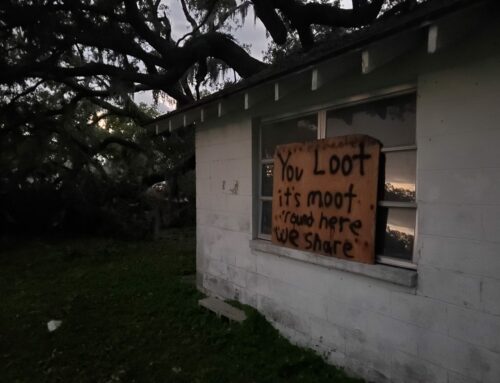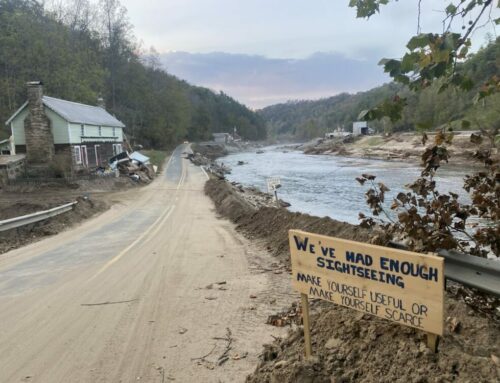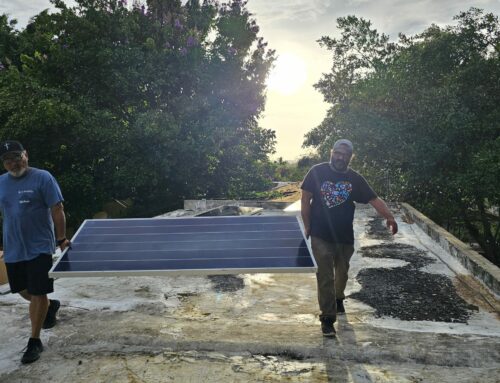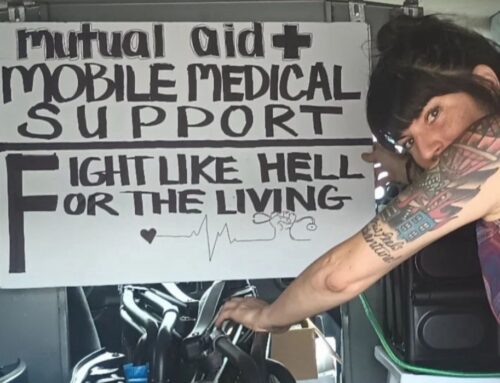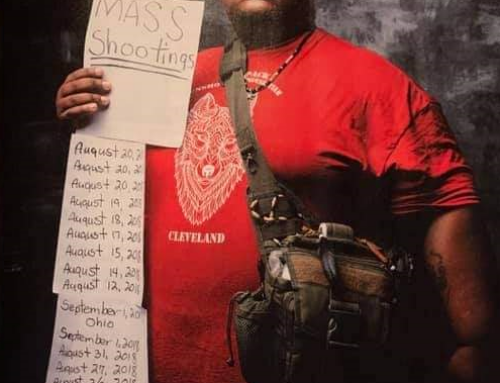December 29th, 2018

At the end of a long year, our second workshop tour is complete! Over the course of three months, we worked our way from Albuquerque to San Diego, then north toward Seattle, and across the midwest into Wisconsin, making a total of 21 stops.
The MADR Network has only been around a couple years, and is mostly focused on supporting response efforts to hurricanes on the east and gulf coasts. In traveling west, we wanted to understand the unique disasters that communities are facing, the lessons they’ve already learned, and explore how a grassroots network could carry resources, information, and stories across the so-called U.S.
When calamity strikes, it’s not uncommon for people to ask why the Red Cross has failed to help, leaving them to rely on those closest for support. We say that the true first responders aren’t paramedics or fire crews – and they certainly aren’t the police. They’re the people most directly impacted on the ground. On tour, we emphasized cooperation and self-determination, rather than waiting for aid to swoop in from above. If you missed us, plan to host a training in your hometown, or simply want to review our materials, please download and share the first draft of our evolving facilitator toolkit. We’d love feedback on this!
Our workshops began by acknowledging disasters as much more than the acute catastrophes of climate chaos or sudden ruptures of infrastructure. We live in the disasters of colonization and capitalism every day, and it’s these systemic disasters we spend our time responding to after the embers have gone cold or the waters clear. Earth’s natural cycles aren’t the problem. The disaster is the way institutions capitalize from and create inequality. It’s the power structure that holds a monopoly on aid, but refuses to distribute it to those in most dire need.

In defining “disaster” this way, we casted a broad net, met with communities that had different levels of preparedness, and brainstormed the logistics of an intersectional approach to organizing that learns from the past and builds survival programs for the future. We spent a lot of time with our new friends discussing hopes and fears, the collective work of grief, and how necessary it is to move forward at the speed of trust – to create a commons of care rather than a culture of burnout. A major theme we shared was that our “audacity is our capacity.”

We constantly refined the content and narrative of our lessons to evoke more magic in our conversations. Our intimate team supported each other to make quick decisions, plot logistics, craft Instagram posts, drive long-distance, and manage funds, all while providing each other constructive feedback and making occasional time to stop in nature.
This work is heavy, but, we joined tour with a whole lot of heart, and, as we traveled some 5,000 miles, were replenished with so much care and inspiration by the people who invited us into their communities.

We understand that everyone, regardless of how rich, racist, or capitalist they are, can practice mutual aid in their daily life. However, it’s the capitalist, patriarchal, colonial cultures that stratify care. Right wing militias have their own form of mutual aid work in response to crisis. Of course, the demographic they offer support to is blatantly narrow, and their aim is to gain power in the greater white community.
In Grants Pass, OR, the Oath Keepers have been cooking for the firefighters and organizing evacuations for the white, middle class residents and their animals. Along with State of Jefferson advocates, they’ve taken advantage of the public’s goodwill to grab more seats of power at the city and county levels, and are pushing anti-immigrant, racist, and classist policies into law. Similarly, MADR folx responding to Hurricane Michael have been dealing with the League of the South presence in the panhandle.
In common, we’re all witnessing the crises of gentrification, lack of affordable housing, vanishing public infrastructure, a growing white supremacist movement, and an increasingly toxic environment. Many of us have witnessed the State fail to respond in the wake of acute disasters, and many of us are seeking ways to take direct action.
Along the west coast, people are discussing the lack of institutional preparedness for the next big earthquake along the San Andreas or Cascadia faults. While a tsunami following the earthquake would add to the crisis, a lack of adequate infrastructure in poor areas and bare minimum evacuation plans for disabled and senior populations are expected to exacerbate this type of disaster as well.
Despite such a daunting landscape, we found people preparing their communities for responses to acute disasters while organizing mutual aid efforts that seek to collectively address the ongoing ones, too. After our tour stops, some communities have been meeting around the topic of preparedness to build upon pre-existing trainings, resource-sharing, and relationships of solidarity in advance of crisis. Folx we met in Chico, CA, have begun organizing under the name North Valley Mutual Aid and are sorting out the pressures of immediate response and long-term planning as the smoke clears from the most destructive wildfire in state history.

From many angles, it seems like we’ve been losing ground. We’re told it’s too late; that humanity is forgone. We watch dark clouds loom over communities. But, on tour we met with countless organizers who are walking forward to meet the bright alternatives they’ve been imagining. One of the best parts of tour was hearing people express gratitude for the opportunity our stops opened to gather with people across their regions and hold a little space for each other to talk about the nightmares that keep them up at night, and the dreams that keep them going.
The MADR Network has a few intentional conversations to have before we can discuss future workshops. We’re sitting on some big questions, and have been humbled by thoughtful feedback regarding our content, outreach, and accessibility. Now, we’re taking time to reflect on how to come in a good way, in response to crisis and on tour as well.
We’re focusing on how best to make collective decisions, what it means to actually uplift the most marginalized voices, and how people outside of the often white, anarchist demographic can be empowered to host trainings in their communities, too. In the meantime, we want to support folx in connecting with each other and growing their communities.

We’re beyond thankful for those who took us in, cared for us, and trusted us to hold a little space in their communities, and we really are so inspired by the work we see folx doing. People are organizing, and, as a network, we hope to carry those projects and stories together.
Stay tuned for more updates by checking out our website to join the mailing list, or by following us on Instagram, Facebook, or Twitter.
In love and light,
The MADR Fall Tour Crew
